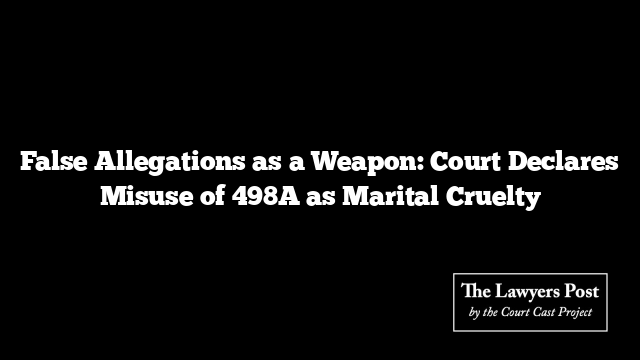The Bombay High Court has ruled that filing a false criminal complaint under Section 498A of the Indian Penal Code with the aim of “correcting” a spouse’s behavior constitutes cruelty under the Hindu Marriage Act, paving the way for divorce.
A bench comprising Justices G.S. Kulkarni and Advait M. Sethna emphasized that such baseless accusations not only shatter trust but also erode the core values of marriage, making reconciliation impossible.
The case revolved around a wife who, following her marriage in 2006, filed a Section 498A complaint against her husband, alleging cruelty. While the trial and appellate courts dismissed the charges, the wife pursued the matter through repeated legal appeals, despite the absence of evidence or substantive intent to mend the relationship.
The court found the wife’s admission revealing: the complaint was filed not to seek justice but to compel a behavioral change in her husband. Such misuse of legal mechanisms, the court held, inflicted irreparable damage to the marital bond.
“Once a spouse resorts to false prosecution, the foundational trust and rationality essential for a marriage are irreversibly compromised,” the judgment stated.
This misuse of the law, described as “draconian,” was deemed sufficient grounds for divorce under Section 13(1)(i-a) of the Hindu Marriage Act. The family court had earlier granted the husband divorce in 2018, citing the wife’s actions as cruel. The High Court upheld this decision, finding no fault in the earlier judgment.
In a resounding endorsement of fairness, the court concluded, “The appellant’s false allegations amounted to cruelty, leaving no room for the marriage to continue.”
The ruling underscores the judiciary’s stance against the weaponization of legal provisions, reaffirming that justice serves to protect—not to manipulate.





